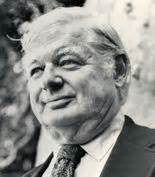A Quote by Aristotle
Since the branch of philosophy on which we are at present engaged differs from the others in not being a subject of merely intellectual interest — I mean we are not concerned to know what goodness essentially is, but how we are to become good men, for this alone gives the study its practical value — we must apply our minds to the solution of the problems of conduct.
Related Quotes
Both our present science and our present technology are so tinctured with orthodox Christian arrogance toward nature that no solution for our ecologic crisis can be expected from them alone. Since the roots of our trouble are so largely religious, the remedy must also be essentially religious, whether we call it that or not. We must rethink and refeel our nature and destiny.
We must show that liberty is not merely one particular value but that it is the source and condition of most moral values. What a free society offers to the individual is much more than what he would be able to do if only he were free. We can therefore not fully appreciate the value of freedom until we know how a society of free men as a whole differs from one in which unfreedom prevails.
Embedded in every technology there is a powerful idea, sometimes two or three powerful ideas. Like language itself, a technology predisposes us to favor and value certain perspectives and accomplishments and to subordinate others. Every technology has a philosophy, which is given expression in how the technology makes people use their minds, in how it codifies the world, in which of our senses it amplifies, in which of our emotional and intellectual tendencies it disregards.
We are all alone, born alone, die alone, and -- in spite of True Romance magazines -- we shall all someday look back on our lives and see that, in spite of our company, we were alone the whole way. I do not say lonely -- at least, not all the time -- but essentially, and finally, alone. This is what makes your self-respect so important, and I don't see how you can respect yourself if you must look in the hearts and minds of others for your happiness.
Ever since men became capable of free speculation, their actions, in innumerable important respects, have depended upon their theories as to the world and human life, as to what is good and what is evil. This is true in the present day as at any former time. To understand an age or a nation, we must understand its philosophy, and to understand its philosophy we must ourselves be in some degree philosophers. There is here a reciprocal causation: the circumstances of men s lives do much to determine their philosophy, but, conversely, their philosophy does much to determine their circumstances.
Ethics occupies a central place in philosophy because it is concerned with sin, with the origin of good and evil and with moral valuations. And since these problems have a universal significance, the sphere of ethics is wider than is generally supposed. It deals with meaning and value and its province is the world in which the distinction between good and evil is drawn, evaluations are made and meaning is sought.
What struck me most in England was the perception that only those works which have a practical tendency awake attention and command respect, while the purely scientific, which possess far greater merit are almost unknown. And yet the latter are the proper source from which the others flow. Practice alone can never lead to the discovery of a truth or a principle. In Germany it is quite the contrary. Here in the eyes of scientific men no value, or at least but a trifling one, is placed upon the practical results. The enrichment of science is alone considered worthy attention.
All this care for the world, we must believe, is taken by the Gods without any act of will or labor. As bodies which possess some power produce their effects by merely existing: e.g. the sun gives light and heat by merely existing; so, and far more so, the providence of the Gods acts without effort to itself and for the good of the objects of its forethought. This solves the problems of the Epicureans , who argue that what is divine neither has trouble itself nor gives trouble to others.
It will not do merely to listen to great principles. You must apply them in the practical field, turn them into constant practice. What will be the good of cramming the high - sounding dicta of the scriptures? You have first to grasp the teachings of the Shastras, and then to work them out in practical life. Do you understand? This is called practical religion.










































